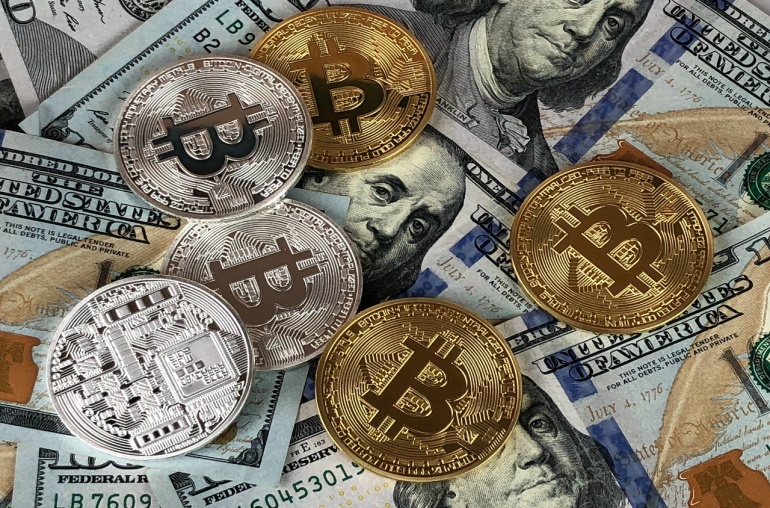Cryptocurrencies are all the rage right now, and for good reason. They have proven to be a lucrative investment medium with immense potential to yield huge profits. However, it’s vital to remember that these digital currencies can rise and fall in value depending on a variety of variables.
Today, we’ll look at the factors that influence the price of cryptocurrencies so you can make informed judgments about whether or not to invest in them.
1. Demand and Token Utility
The demand for a cryptocurrency unit is the most effective technique to estimate its price. The digital coin price will rise due to high demand from purchasers. In contrast, if a cryptocurrency has a large token supply but little demand, its price will drop.
The degree of token utility that shows how valuable the token is can be another element that influences the value of a cryptocurrency. A complicated mining method will make increasing the coin’s supply harder, putting upward pressure on prices when demand is high.
2. Node Count
The amount of wallets that are active on the crypto network is measured by the node count. It is a reliable indicator of a cryptocurrency’s worth. The number of nodes is significant since it represents the strength of the community.
A high quantity of nodes showcases a strong community, and a robust community heightens the currency’s chances of going through a probable crisis successfully. Furthermore, a high number of nodes may also signify a network’s power and decentralization, which are key aspects in the crypto sector.
To determine whether a currency is overvalued or has a reasonable price, look up the node count and total market capitalization of the coin, then contrast the two indications to other cryptocurrencies
3. Exchanges for Cryptocurrencies
When a token is accessible on a large number of cryptocurrency exchanges, more people are interested in purchasing and using it.
If you need to change any cryptocurrency token between two or more exchange platforms, you’ll have to pay fees for every swap, which raises the cost of investment.
Bitcoin prices, for instance, vary based on the exchange where you are trading. The pricing differences are due to a few factors. First and foremost, there is liquidity.
On bigger exchanges, Bitcoin trading activity might be high, but on smaller exchanges, it can be significantly lower. The price is affected by supply discrepancies.
Secondly, there is no defined universal method for pricing Bitcoin, which implies that no one knows how much it should cost, and the value is solely determined by trade.
Finally, transporting money between exchanges is inconvenient and inefficient, and it necessitates a large amount of collateral.
As a result, traders find it difficult to exploit price disparities across exchanges, allowing them to persist more than they might in a more efficient market.
4. Regulation by the Government
Because some governments dislike cryptocurrencies’ decentralized and uncontrolled nature, it’s critical to find measures to regulate the cryptocurrency market.
Government regulation could be a factor affecting Bitcoin pricing. Governmental approval is essential for Bitcoin’s value to continue to rise, with regulation as the price.
The value of cryptocurrencies can be influenced in a number of ways by government involvement. To begin, governments can control the price of assets like fiat currencies by purchasing and selling them on international markets.
Secondly, they can dampen overconfidence in an asset class by slapping it with restrictions that raise the business costs. Lastly, governments can impose controls on the asset to make it scarce. Gold, for instance, is subject to import limitations in a number of countries.
In the context of Bitcoin and cryptocurrencies, all three sorts of operations have the tendency to fail. This is due to the fact that cryptocurrencies are extra-national in nature and have decentralized ledgers that span numerous jurisdictions.
The simplest way to control cryptocurrencies is to levy a tax on any fiat money which people use to trade in their tokens. Since this tax only pertains to certain tokens, anyone looking to cash out their earnings can simply move to another coin.
Numerous countries have decided that banning Ethereum, Bitcoin, and a few other digital currencies is the most effective way to regulate the crypto market.
Unfortunately, putting extra rules against cryptocurrency in a state with a huge crypto user base will have a negative impact on their value. Other nations, like Japan, are exploring blockchain technology and are reported to be developing a national cryptocurrency to entice more people to adopt virtual tokens.
5. The Internet and Social Media
Cryptocurrency prices are known to vary as a result of social media hype. It also functions in other ways since news can cause prices to fall or rise. There’s also the presence of powerful cryptocurrency figures like Elon Musk, who has influenced the price of the DOGE token on many occasions.
Despite the fact that social media is unpredictable, there is information to be found there. Crypto exchanges, for example, publish daily news on blockchain currency or issue warnings to users about cryptocurrency scams.
6. Scarcity
If the supply of cryptocurrency is limited, the cost will increase because fewer coins will be available for purchase. If only 40 percent of the coins are in rotation and the remaining 60 percent are kept, the price may decline as additional coins become available to buy.
Existing coins are burned in some cryptocurrency initiatives by transferring them to a non-recoverable address on the blockchain. This allows them to keep a tight grip on the existing supply.
Final Verdict
Many factors affect the value of cryptocurrency, and there is no reliable way to determine it, which is why leading economists advise investing just what you can afford to lose in cryptocurrencies and conducting stringent research before opening your wallet.
Don’t invest your life savings in any cryptocurrency, no matter how lucrative it seems, because there is no guarantee that its price will remain stable.



